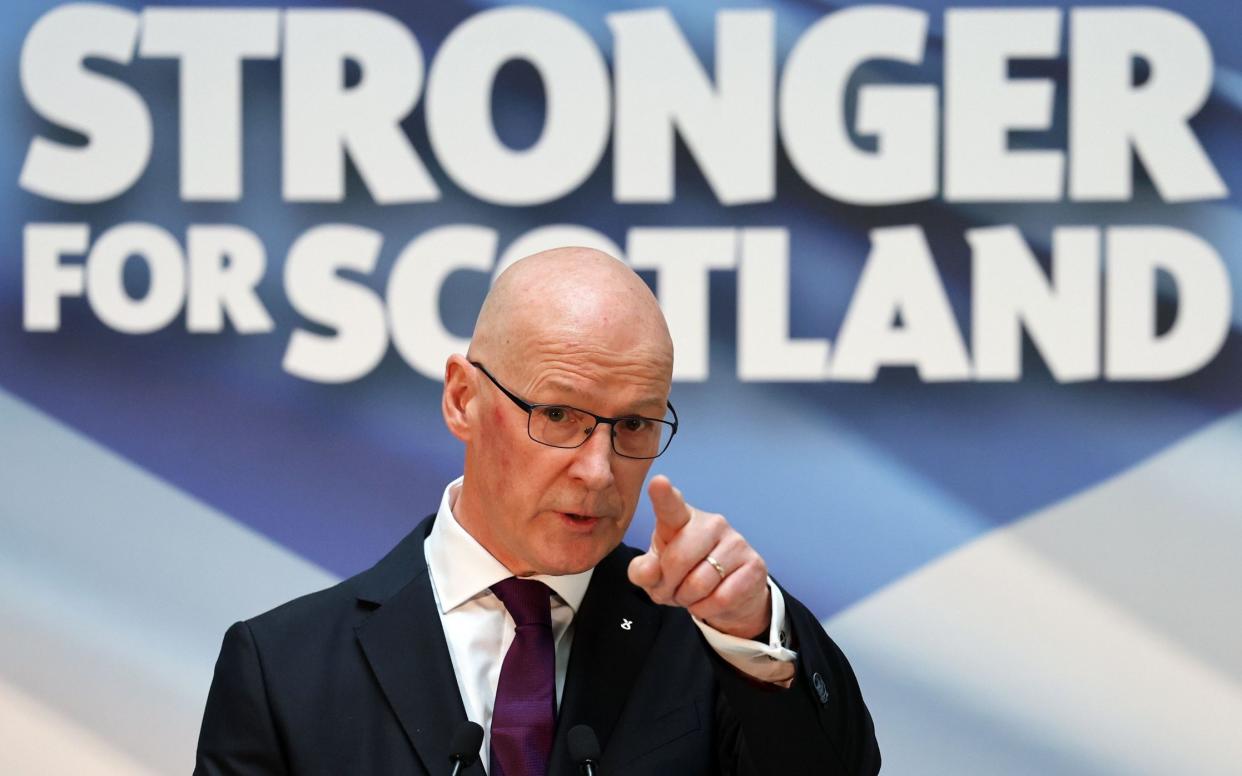Little to choose between Swinney and Sunak for straining credulity

Rishi Sunak’s claim that on the basis of Thursday’s local election results Labour would not be able to form a majority government in the forthcoming general election, is being immediately challenged by pollsters as well as Tory election stalwarts.
The Prime Minister had said that the best Keir Starmer could hope for would be to form a minority government with the SNP, Lib Dems and Greens.
But, given that politicians are known for having a sneaking regard for straws, that’s how Sunak’s view is being viewed – as an example of his clutching at straws – pure and simple – when everything else is looking hopeless.
He based his view about the possible result of the general election based on a projection of the local government results but these put Labour’s current lead over the Conservatives at just seven points, much less than opinion polls have been saying for some time.
However, it was an opinion that is not widely shared in the political community. One pollster, Ben Page, of Ipsos, was reported as saying Sunak’s analysis was “for the birds”.
In addition, a senior Tory campaign manager described this view from Downing Street as “completely mad” and as almost an invitation to the electorate to vote Labour.
The main complaint from both pollster and politician was that as there had been no local elections in Scotland last Thursday the PM’s view had been based on the results of the 2019 general election, when Labour won only one seat north of the border.
Nobody, but nobody, thinks that’s a likely scenario; indeed a Scottish survey by Norstat (formerly Panelbase) suggested that Labour could end up with 28 Scottish seats, with the SNP reduced to only 15 seats, compared to the 43 they hold at present. The Tories would increase their tally by three to six seats, with the Lib Dems gaining one to five.
However, if Sunak’s views of the general election prospects are being heavily challenged from within, everything was sweetness and light over in the SNP corner. At least for now.
There, as smooth as silk John Swinney graciously accepted the fact that he’d been crowned party leader unopposed when the last of the possible contenders – an unknown lawyer – pulled out of the contest.
Swinney finally got boss’s job
I don’t think I’ve ever seen Swinney smile as much as he’s doing now, but then why wouldn’t he? He’s finally got the boss’s job at last – First Minister of Scotland, in succession to Humza Yousaf, whom he chose not to serve under, Nicola Sturgeon, for whom he acted as a sort of uber-loyal consigliere and Alex Salmond, with whom he learned all the ropes of tough-guy politics.
He didn’t put independence at the top of this list of policy priorities, much to Wee Eck’s annoyance, but I can’t imagine anyone thinks that Swinney’s about anything else. He insists that he’s a straight up and down left of centre moderate. Maybe so but the big difference with others of that ilk is that Honest John – a nickname that he hates, by the way – wants to break up Britain.
Oh yes, and he wants politics to be less polarised and not so hostile as it’s become – and, yes, he admitted to being guilty of a bit of that sort of rough stuff when the occasion demands.
All in all we’re being asked to believe that this man who’s been at the heart of the entire SNP effort since the opening of the Scottish Parliament in 1999 is about to begin a brand new career.
I can only guess that he’ll only be able to succeed by insisting that nothing that went wrong in all that time was anything to do with him. But, given how powerful a position he’s always enjoyed, why should we believe him?


